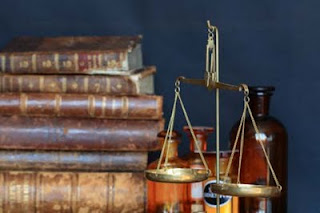New NBP Course Beginning September 22, 2011

NNAPA is launching a new course in Natural Botanical Perfumery beginning September 22, 2011.
NNAPA currently offers a single fully paid scholarship to a randomly chosen student each course session; if interested in scholarship information, please contact the administrator at NNAPA.
About the NNAPA course:
- Antiquarian Perfumery/Natural Botanical Perfumery is a non-accredited course, and no prerequisites are required except a passion and desire to learn Natural Botanical Perfumery from the ground up. This course is recommended for those who desire to begin a career in NBP, or those who wish to broaden their educational horizons.
- Course tutor: Justine Crane. Justine Crane has been actively studying and formulating specifically for perfume since 2003, and actively making and selling scented natural handmade soaps, balms, butters, etc, since 1996. Justine took nine months to study, evaluating essences daily, formulating for soaps, butters, balms, bombs, melts, and oil-based perfumes. In October 2007, Justine started a study group called Black Nails, just herself, and two delightful women who were as interested in honing their perfumery skills as she was herself, and they spent a year studying Jean Carles, Edward Sagarin, Poucher, Verrill, Arctander, and obscure catalogs such as the Buyer's Guide & Cyclopedia for Soaps, Perfumery and Cosmetics, circa 1938. They conducted trials, shared formulas, evaluated essences and shared insights -- it was a marvelous education they created together. When it was done, Justine opened her shop and began peddling her wares.
- The NNAPA aka Natural Perfume Academy is open 24 hours a day, 7 days a week. Instruction will be given via forums, formal and informal chat sessions, and by units. Students will be given specific time frames in which to read, research and participate in each unit before the next unit is open for study and discussion.
- An evaluation work book and course textbook are provided to each participating student and its cost is included with the tuition. A recommended reading list is provided in the work book. No other books or texts are necessary to complete the course.
- Topics covered in the course include, but are not limited to, a brief perfume history, popular historic perfumery ingredients, the evolution of the perfume culture, safety issues, endangered species and cruelty in perfumery, storage and shelf-life of raw materials, chemical constituents of perfume ingredients, glossary of terminology, the perfumers studio, the perfumers palette, notes, accords and chords, evaluation of raw materials, supplemental scent vocabulary, continued olfactory training activities, advanced perfumes tools and techniques, tinctures, evulsions, dilutions, scales, required lab ware, oil and solid perfume making instruction, basic instruction in the production of soaps, butters, balms, massage and bath oils, creation of perfume, vertical and horizontal perfume trials, intuitive perfumery formulation, base compound formulation, advanced composition techniques, discussion of sacrificial perfume materials, finishing, “fining”, clarifying perfume compositions, creating custom perfumes, creating a reverse brief, reading and interpreting a brief, suggested raw materials to compliment the perfumers palette, and more.
For more information, contact the course administrator.
New this session: Shorter course time & payment plans for nearly all students.


Comments
Post a Comment